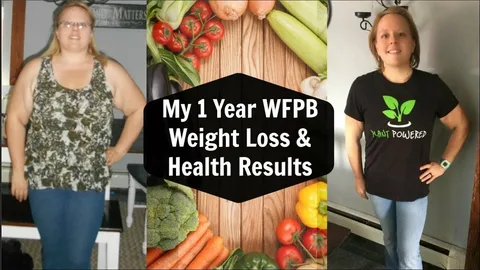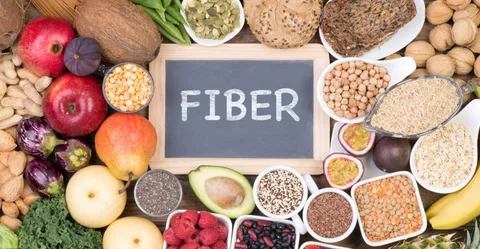Introduction To Plant-Based Weight Loss

Countless numbers of people in today’s date are in search of various effective and sustainable methods concerning weight loss. As awareness of the health benefits from whole, natural foods increases, so is the trend of adaptation of Plant-Based Weight Loss eating habits by people-not because of any ethical cause but due to the huge amount of health advantages it offers. From all of these health advantages, probably the most valuable one is weight loss. In this article, we look at the relation of Plant-Based Weight Loss, how it works, and tips on how one can get started.
What is a Plant-Based Diet?
A plant-based diet focuses on consuming food products from plants: vegetables, fruits, grains, nuts and seeds, and legumes. Other than that, a vegan diet forbids any sort of animal foodstuffs, while a Plant-Based Weight Losst is a bit more flexible; in some of its versions, small uses of animal products are allowed. The philosophy here is to base your diet on plant foods in everyday life.
How Plant-Based Eating Encourages Weight Loss

1. High in Fiber, High in Nutrients:
Plant-based foods are mainly high in fiber from fruits, vegetables, and whole grains. Fiber helps promote a feeling of fullness to reduce overall calorie intake by preventing overeating. Plant-based foods will also provide the body with vital vitamins, minerals, and antioxidants for the body without adding extra calories as found in processed foods.
2. Low in Calories and Fat:
Generally, whole, unprocessed plant foods tend to be lower in calories compared to animal-based or processed foods. They are also naturally low in unhealthy fats, especially trans fat and saturated fat, which are found in high amounts in meat and dairy products. This combination makes it more plausible for one to create a calorie deficit, which is important for weight loss.
3. Reduced Risk of Overeating:

Plant-based meals are dense in water and fiber; thus, a person can eat more quantities of such foods without excessive calorie intake. This also cuts on cravings and overeating during and between meals on high-calorie food.
4. Improved Digestion and Metabolism:
The fiber in plant foods facilitates digestion, besides helping one keep off bloating and constipation. Many plant foods are thermogenic, meaning they raise the rate at which your body burns calories somewhat, thus improving metabolism.
5. Lower Insulin Resistance:
Scantly, some studies have proved that increased consumption of whole grains, legumes, and leafy greens yielded improved insulin sensitivity. With improved insulin sensitivity, you are better able to regulate blood sugar levels and consequently cut off fat storage, particularly around your midsection area.
Foods to Include in a Plant-Based Weight Loss Plan

The cornerstone for maximum weight loss on a Plant-Based Weight Loss should be whole, unprocessed foods. The following are some key groups to include:
- Leafy Greens: These would include spinach, kale, arugula, and collard greens, which are very low in calories but highly loaded with nutrition.
- Fruits: Berries, apples, oranges, and avocados provide vitamins and fiber.
- Produce: Broccoli, carrots, bell peppers, and sweet potatoes all provide a whole host of vitamins, minerals, and antioxidants.
- Whole grains: brown rice, quinoa, oats, and barley-are filling and full of fiber.
- Legumes: include lentils, beans, and chickpeas, great sources of plant-based protein, along with fiber.
- Nuts and seeds: like almonds, chia seeds, flaxseeds, and walnuts, are nutrient-dense and full of healthy fats that support metabolism.
Tips for Success on a Plant-Based Weight Loss Journey

1. Plan Balanced Meals:
Make certain every meal will include a balance of the macronutrients: protein, carbohydrates, and healthy fats. While plant-based foods are health-promoting, one must put together well-rounded meals that will keep the body adequately nourished.
2. Limit Processed Foods:
Not all plant-based foods are created equal. Processed and prepackaged foods labeled “vegan” or “plant-based” can contain added sugars, unhealthy fats, and preservatives. Whenever possible, opt for minimally processed whole foods.
3. Hydrate:
Water intake is highly essential for weight loss. Sometimes the body confuses hunger with thirst, hence staying hydrated can help control unnecessary snacking.
4. Exercise Regularly:
Combine your plant-based diet with regular exercise for better and quicker results. Exercising, be it strength training, cardio, or even yoga, will help burn more calories and tone up the body when one is on a weight loss regimen.
5. Be Patient and Consistent:
Weight loss with a plant-based diet takes time, especially when your body is adapting to new eating habits. Be consistent, and don’t search for quick fixes. It will all be worth it in the long run.
Conclusion
Plant-Based Weight Loss it is not just a fad to lose weight; it is changing your life to a healthier one in all aspects. Paying attention to whole, nutrient-rich foods can help you naturally lose weight in a really sustainable manner. A plant-based weight loss approach may fit you. You can add fruits, vegetables, whole grains, and legumes into your meals while cutting back on processed foods. The art of losing weight does not lie in eating less; it is about intelligent eating. Patience and persistence are the keys that will help you achieve those results on the scale and, more importantly, in your health.
